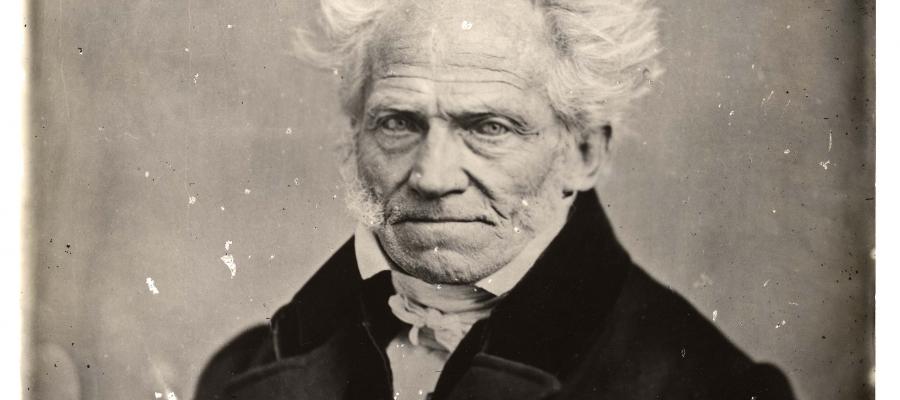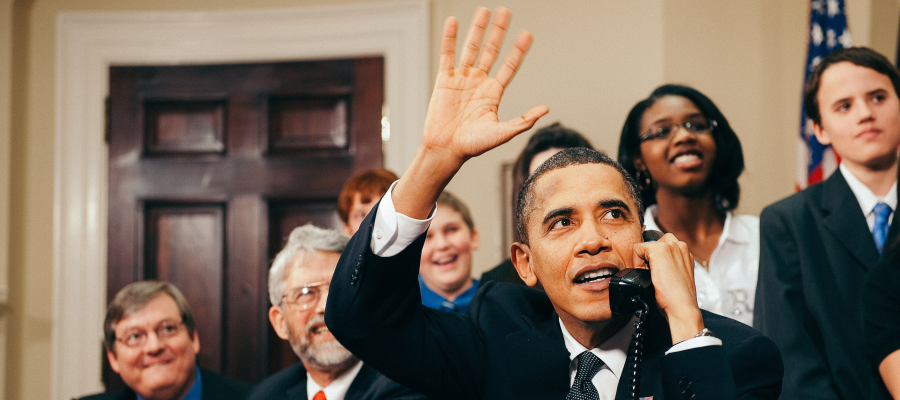Abortion and Dehumanization
04
Aug 2020
From time to time, pro-life advocates argue that those who take a pro-choice position routinely dehumanize the unborn, paving the way for murder-by-abortion. Every so often, my own work on dehumanization is appropriated to make such arguments. In this essay and the next I want to show why these arguments don’t hold water. Let’s begin with a dehumanization claim, as summed up in a comment by the journalist Kathleen Parker in an op-ed for The Washington Post, “When we use language to disguise reality — whether the developing human baby is a ‘clump of cells, a ‘fetus,’ or, even, a ‘...
Read moreLiberalism and Self-Government
14
Oct 2022
This week we're thinking about the British Liberal tradition and its relationship to colonialism and self-government. Classical Liberal thinkers, like John Locke and John Stuart Mill, held that we're all born free, equal, and capable of rationality, and so we all deserve to be free and equal. So how does that square with a British Empire that denied people around the globe their autonomy for centuries, or a United States of America—whose Founding Fathers explicitly looked to those Liberal thinkers for inspiration—founded on colonialism, "manifest destiny," and slavery? Locke himself...
Read moreSchopenhauer and Prozac
02
Apr 2005
I admit it: I've been reading a lot of Schopenhauer, especially his Essays on Pessimism. They are fascinating, and extremely beautifully (and of course provocatively) written. Here's a cheery and lovely passage: "Could we foresee it, there are times when children might seem like innocent prisoners, condemned, not to death, but to life, and as yet all unconscious of what their sentence means. Nevertheless, every man desires to reach old age; in other words, a state of life of which it may be siad; 'It is bad to-day, and it will be worse to0morrow; and so on till the worst of all." Hmm. ...
Read moreThe Philosophical Dimensions of Reparations
22
Feb 2017
At the end of our recent episode on reparations, John expressed bewilderment about what should be done. That’s understandable. The historical injustices perpetrated against blacks on American soil span four centuries and would be impossible to quantify. It seems impossible to settle who should pay reparations, given that slaveholders are all dead, and who should receive them, given that descent is a complicated affair. And the political sentiment is mostly contrary, even among liberals. One’s feeling of bewilderment is apt to increase, at least temporarily, upon reading relevant historical...
Read moreAm I a Postmodernist
12
Sep 2009
The term ``postmodern’’ came into use as a description of certain trends in architecture, art, and literature in the 1970’s, although the trends it describes reach back earlier in the twentieth century, to Joyce and Finnegan’s Wake in the case of literature, and to the 1950’s at least in the case of architecture. But what counts as postmodern philosophy? One theme of postmodernism, according to Jean-François Lytard at any rate, is the opposition to theory and “meta-narrative”. If I had just this much to go on, I might think that a good candidate for postmodern...
Read moreOdds and Ends
24
Jun 2006
Our limited forray into podcasting via the Stanford Itunes experiment has been a great success. Lots and lots of folks, though, have expressed the wish that we would podcast all of our episodes. Well, we're about to make those wishes come true. We're currently in negotiations with two podcasting services. We will probably sign a contract with one or the other in the next week or two. Once we do, we will immediately start converting all of our files to the relevant format. For a modest fee, listeners will be able to subscribe to...
Read moreHow (Not) to Fall Asleep
10
Jan 2019
I’m one of those 40 million Americans who struggle with insomnia. And so I’m here today with an insomniac question: Why can falling asleep be so difficult? There has been an exciting surge of research about sleep over the past twenty years. It is described very clearly by Matthew Walker—professor of neuroscience and psychology at UC Berkeley—in his 2017 book Why We Sleep. He identifies a variety of culprits that are now known to contribute to rampant sleep deprivation in the U.S. among insomniacs and others. They include: light from personal electronics; rigid and demanding work and school...
Read moreHow Much Thought Is Inactive?
19
Dec 2019
How much of your mental life is intentional action? And how much of it consists of inaction, not doing anything at all? To answer that, we need to get clear on what we mean by “intentional action” and “inaction.” When you do something intentionally, you have in mind what you are trying to do. You can tell someone what you’re up to. And in the realm of intentional action, you can do something in order to do something else. You can intend to perform a means to an end. You can do all sorts of things intentionally—snap your fingers, knead dough, run a marathon, paint a wall. When you...
Read moreBuddhism, Science, and the West
08
Dec 2017
Why do many of us assume that Buddhism and science are polar opposites—that Buddhist teachings are so paradoxical and mysterious they are not even meant to be understood? Is it possible instead that the teachings of Buddhism actually far predate certain scientific conclusions the West is just now discovering? What can be said about the scientific verifiability of Buddhism? This article by Robert Wright on The New York Times philosophy blog, The Stone, takes a stab at vindicating Buddhism in this way: https://www.nytimes.com/2017/11/06/opinion/buddhism-western-...
Read moreThe End of Privacy
06
Apr 2018
The End of Privacy: Or Why Your Home is Not Your Castle And Your Data is not Your OwnOnce upon a time, your home was considered your castle, a sphere of absolute privacy, where you could reliably escape prying eyes. No one, except perhaps the constable, dared even enter one’s home without permission. And with the eventual rise, at least in the more democratic corners of the globe, of legal privacy rights, even the constable was required to be solicitous of the sanctity of the home as a zone of privacy. Of course, people have always invited others into...
Read moreStagehands in the Theatre of Life
21
Jun 2016
“Live your life as a work of art!” Thus rings the slogan discussed by John, Ken, and Lanier Anderson on the August 8, 2013, episode of Philosophy Talk, recorded live at Stanford. The show re-aired on June 5. On listening again, one big thought struck me. The life-as-a-work-of-art idea, as it was formulated on the show, embodies an unrealistically individualistic portrait of what making art is like, and this undermines the metaphor. It seems to say: I should make my life a work of art. And presumably each other person is responsible for making her or his life its own...
Read moreSome Thoughts on Problematic Arguments
06
Apr 2017
Jeff McMahan and Peter Singer—the latter a famous philosopher and public intellectual, the former famous enough among philosophers, but not so much among the broader public—wrote an article in The New York Times philosophy forum, "The Stone," that has gotten lots people I know and respect pretty upset. Some have reacted to the article with very reasoned and persuasive counter-arguments. Some have thrown in a good measure of anger and disgust at them in addition. You can check out the original article here: Who Is the Victim in the Anna Stubblefield Case?...
Read moreLeft Lanes, Right Lanes, & Medians
02
Aug 2015
Left Lanes and Right Lanes by Charles Osborne I shall try here to divide two broad historical virtues in political history, each founded on philosophical (ethical) grounds, which do (and always have) pulled most of us in two directions as societies or nations. (We are also conflicted in the same way as individuals.) The reason the opposing movements never go away is that we like both of them, but we must very often choose between them. One of these virtues is justice, and the other is grace. Some people might not like one or the other, or both—but normal people, regardless of the culture,...
Read moreRumor, Suspicion, and Misinformation
28
Jul 2017
I’m sometimes shocked, as a researcher, at where my investigations lead. In the course of revising a new paper on experience and belief in the supernatural (co-authored with Michiel van Elk of University of Amsterdam), I received some comments that referred us to a book on sorcery “beliefs” and the HIV/AIDS epidemic in Zimbabwe. The referred-to book was Alexander Rödlach’s Witches, Westerners, and HIV: AIDS and Cultures of Blame in Africa. It was published in 2006. But its insights about rumor, suspicion, and misinformation are relevant today—not just for understanding Zimbabwe,...
Read moreSuperpredators Old and New
03
Aug 2017
In last month’s blog, I began to explore the political role of the concepts of naturalness and unnaturalness. To recap, every human culture makes use of a system of conceptual categories—a sort of cognitive grid—to make sense the world. The beings that fit into these are welcomed as natural, whereas those that don’t are abhorred as unnatural. Unnatural beings elicit very powerful aversive reactions: they horrify us. I concluded with the following words: Some of the most hideous acts of atrocity have been perpetrated against those who do not fit into the boxes...
Read moreNeuroscience and the Law
04
Sep 2014
This week, our topic is neuroscience and the law. Neuroscience is revolutionizing our understanding of how the brain works. In the process it is challenging ago-old ways of thinking about crime and punishment. Some neuroscientists even say that it’s time to completely rethink our judicial system in light of their discoveries. That’s because our current legal system presupposes a certain picture of how the mind works that many neuroscientist now believe is almost entirely wrong. Common sense counts a person morally responsible for a wrongful action only if the action results from their...
Read moreNihilism and Meaning
29
Dec 2011
'Nihilism’ is based on the Latin word for `nothing’: nihil. Nihilism is used for a lot of positions in philosophy… that there is nothing at all; that we know nothing at all; that there are no moral principles at all, and virtually any other position that could be framed with the word `nothing’. But the most common use, and what we'll explore today, is nihilism as the view that nothing we do, nothing we create, nothing we love, has any meaning or value whatsoever. Nihilism not only captures a philosophical point of view, but a certain mood, a certain melancholy: is this...
Read moreThe Philosophy of the Vienna Circle
22
May 2021
Is metaphysics just a bunch of nonsense? Is it okay to believe something you could never prove? Could logic be a solution to the world’s problems? This week on Philosophy Talk, we’re thinking about the Vienna Circle, a group of Austrian philosophers from the 1920s who debated these questions in an attempt to usher in a new era of scientifically grounded thinking. While the philosophers of the Vienna Circle (including Rudolf Carnap, Otto Neurath, and the circle’s central figure, Moritz Schlick) had plenty of disagreements, they agreed on some general principles: science and logic are...
Read moreWeird, Wild Stuff
25
Apr 2024
At first glance, the world we live in may not seem especially weird. In fact a lot of it is pretty predictable: the sun rises every morning, if I drop something it falls toward the Earth, and unless some jerk moves stuff around, things stay pretty much where I put them. And yet if you look a bit beyond such things, there’s a lot of weird stuff about the world too. For example, there are lizards that reproduce themselves by cloning. And sea squirts are even weirder: they start their lives as free-swimming larvae, but then they attach themselves to rocks, digest their own brains, and become a...
Read moreThe Language of Politics
19
Sep 2005
We had a fun show last week with Geoff Nunburg about the language of politics. In a little bit, I'll ruminate a bit more about the language of politics. Since we're in the middle of the pledge drive, though, I want a put in a brief good word for KALW -- the innovative little station that could. I really meant it when I said on air that without the risk-taking and innovation that KALW brings to public radio, Philosophy Talk simply would not be happening. I hate...
Read moreTa-Nehisi Coates Reflects on Obama
20
Jan 2017
Caption: President Barack Obama and Ta-Nehisi Coates at the White House What role did race play in his presidency and his path to it? Was Obama a black president, or a president who happened to be black? You might hear people complain that Obama wasn’t really black — or that his experience wasn't representative of the black experience. Is there something to this comment, or are there insidious racial stereotypes couched in it? And perhaps the timeliest question of all: What did Obama and his race have to do with the rise of Trump? Could it be that part of what white...
Read moreHumanism
20
Aug 2010
Our topic this week is Humanism. The program was recorded live at at meeting of the American Humanism Assocation, in San Jose. Well, one might wonder, what controversy can we find in Humanism? We usually think of Humanism as that glorious movement in thought that began in the Renaissance, with the rediscovery and re-appreciation of the texts and art of the Greeks and Romans. Human life, in this world, moves to the center of attention, while God, Heaven, angels and the like, the focus of medieval thought, move aside. Humanism led to the Enlightenment, to...
Read morePolitical Correctness and the Speech Fashion War
30
Nov 2007
It's been awhile since I've done this -- awakened at a god-awful hour on Sunday morning, to write a blog about an upcoming show. I hope I'm lucid. Today's show is about the political correctness. Our guest is Leonard Steinhorn, author of a rousing defense of the baby boom generation, to which I proudly belong, called The Greater Generation. According to Steinhorn, we baby boomers were the leading edge of a great sea change for the better in America. Our age cohort almost single-handedly ended racism, sexism, and homophobia. We brought down corrupt and mendacious presidents. We...
Read moreHow to Think Two Thoughts at Once
10
Jul 2019
Your mental life involves a lot of different kinds of thoughts. You can make decisions about what to do, or figure out some truths about the world, or just daydream in a vivid series of images. There’s great diversity to the types of thoughts you can think. Even so, we tend to think that you can only have one thought at a time. You can switch between different kinds of thoughts quite quickly, or you can think many thoughts one after the other, but you can’t think more than one thought at the same time. That’s a mistake. There’s a way to think two thoughts at once. This isn...
Read moreCelebrating Our 500th Episode
22
Jun 2020
Philosophy Talk just celebrated our 500th episode. Quite an accomplishment from the point of view of the 1st episode. Let me reminisce for a bit. Long a fan of public radio’s Car Talk, I had the idea of something similar based on philosophy. After all, most philosophical problems are more interesting than spark plug problems or transmission problems. So I tried to get a couple of philosophy friends at Stanford interested. David Israel wasn’t interested. Michael Bratman wasn’t interested. But then after Ken Taylor arrived at Stanford and I got to know him, he seemed perfect. So I gave it...
Read more




















